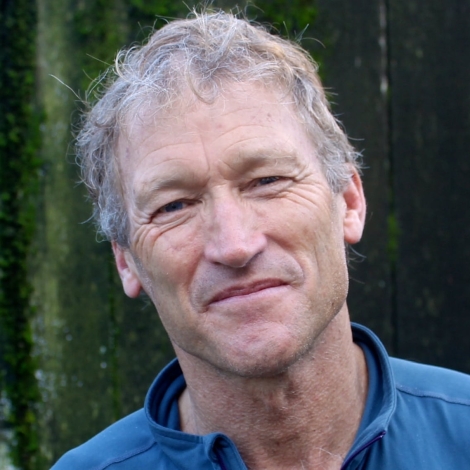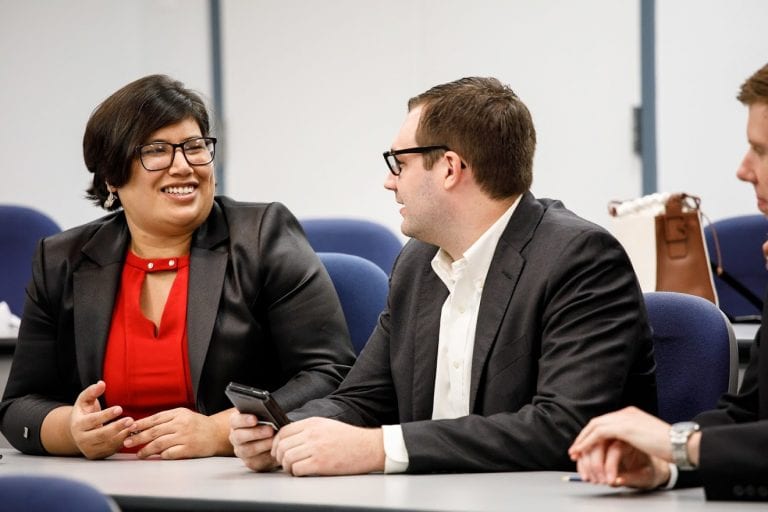Dr. Kevin Starr and the US-based Mulago Foundation say they are obsessed with impact. The foundation has a portfolio of 37 organizations that it supports financially, and every one of them reports to Mulago about the effect it has had on the world. The organizations are mostly start-ups working in developing countries, and Mulago has slotted each into a category, things like smallholder farming, energy and conservation.
Climate change is the thing that threatens to undo most of our progress to date, and it is the one area where a tech solution could make a huge difference.
Dr. Starr was involved from the foundation’s beginning in 1993 following the death of Dr. Rainer Arnhold. Dr. Starr is a medical doctor and that year he was working in Bolivia with Dr. Arnhold. Dr. Arnhold had worked for decades as a pediatrician in the United States and in developing countries meeting global health challenges. The two doctors were hiking together in Bolivia when Dr. Arnhold died. Dr. Arnhold’s family created Mulago to carry on his life’s work. And Dr. Starr took the reins. A decade later, in 2003, Dr. Starr founded the Rainer Arnhold Fellowship, an arm of Mulago that supports social entrepreneurs.
Efficiency is probably inherent in any high-impact venture. Reflecting that value, Mulago’s process is efficient. Mulago doesn’t take proposals because they waste time, the foundation says on its Web site. And it requires impact reports from the organizations that it works with, but nothing more complicated than what the organizations are already reporting anyway.
Part of efficiency is brevity. It shows in Dr. Starr’s preference for the tiny mission statement. “Save African kids’ lives” – Living Goods, one the ventures that Mulago supports. “Get African families out of extreme poverty” – One Acre, another venture they support.
And it shows in this interview. Dr. Starr gave us a little of his time and kept his responses succinct. Succinct but interesting. We asked Dr. Kevin Starr five questions.
E4C: What are some of the best examples of ventures that use hardware to solve problems?
KS: D-Rev is excellent. [And a] few others.
On the other hand, the solar light industry is an example of where companies have gone big, but they are only part of a much bigger market and not particularly critical to moving the ball down the field. And ventures formed around a single technology rarely do very well.
E4C: Why do bad ideas get funded and what can be done to help funders make good decisions?
KS: That’s a huge question. The short answer is that philanthropy/aid does not function as a market for impact and funders are unaccountable.
E4C: “Pilotitis” is an issue in engineering for global development. What is needed to progress ventures to scale?
KS: See the answer above.
Tech is not enough, you need a great organization with a great model for getting the tech in play. No idea goes anywhere beyond a pilot without a committed and competent organization to deliver it. Tech only amplifies impact, it doesn’t create it. Only a committed organization can take things to scale, even if eventual scale involves multiple organizations or governments.
E4C: What technology should the social venture community focus on next?
KS: I don’t know. We’re not smart enough to weigh in on that. We simply evaluate what already exists, mostly early stage. And I don’t think the social sector “focuses” on things. The emergence of new ideas is way more complex than that.
If I’m honest, I think the tech community should focus on climate change. That is the thing that threatens to undo most of our progress to date, and it is the one area where a tech solution could make a huge difference.
E4C: Story time: When did you know that you’re in the right line of work?
KS: Gradually, as Mulago’s model of investing and designing came together, and practicing medicine became more a more of a hassle.
Editor’s note: Haven’t had enough of Dr. Starr? Here he is in a memorable piece he wrote for the Stanford Social Innovation Review, The Doer and the Payer: A Simple Approach to Scale.

